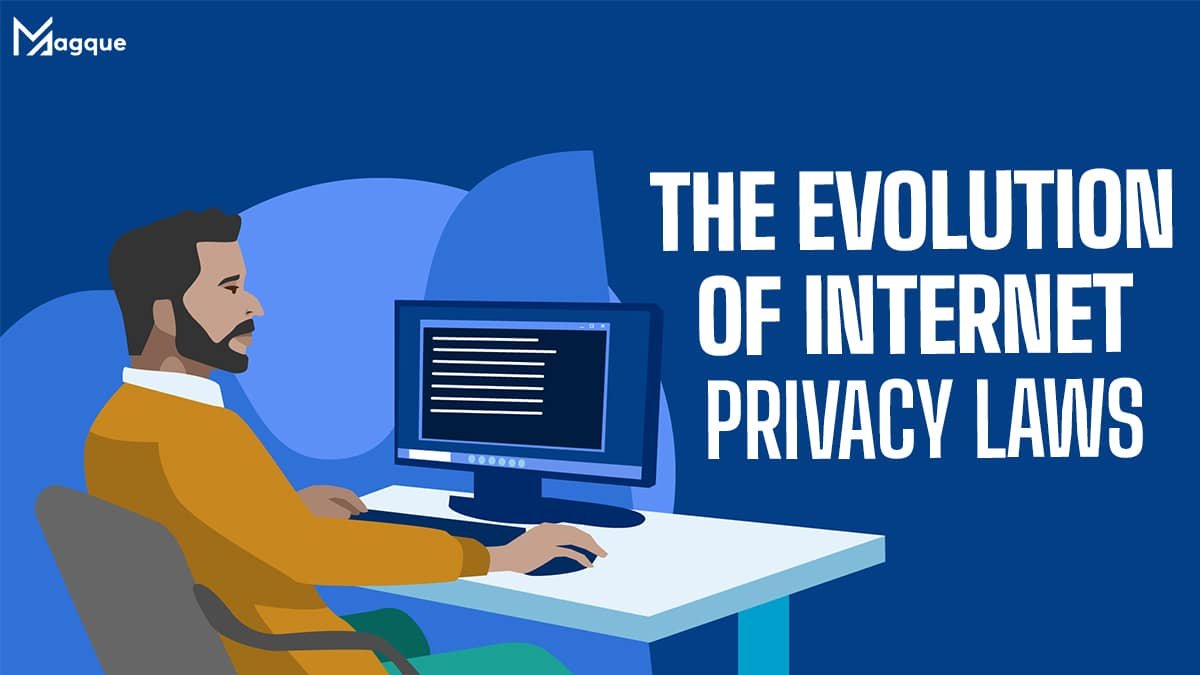Hey there, dear readers! Today, we’re diving into the fascinating world of internet privacy laws. This topic affects each one of us every time we click, swipe, or tap. Let’s unpack this together, shall we?
The Wild West Days
Remember the early days of the Internet? It felt like a digital Wild West, full of possibilities and with little regulation. You could roam freely, but so could data miners and marketers, collecting information without much oversight. It was the era of “anything goes,” and privacy? That was more of an afterthought.
The Wake-Up Call
But then, something shifted. Stories began to surface – tales of data breaches, identity theft, and unnerving levels of surveillance. People started asking, “Hey, isn’t my privacy worth something?” This collective wake-up call sparked a global conversation about digital rights and the need for regulation.
Enter the Game Changers
First, let’s talk about GDPR – the General Data Protection Regulation. Rolled out by the European Union in 2018, GDPR was a game-changer. It said, “Your data belongs to you,” setting strict data collection and consent rules. Businesses had to adapt, ensuring transparency and giving users control over their information.
Across the pond, California introduced the CCPA—the California Consumer Privacy Act. Like GDPR but with its own unique flair, the CCPA empowered residents with more control over their personal data. It was a clear message: Privacy matters, no matter where you live.
The Ripple Effect
These laws had a ripple effect, inspiring countries and states worldwide to draft their privacy protections. The conversation had evolved from “Can we collect it?” to “Should we collect it?” Privacy became a right, not a privilege.
What’s Next?
So, what does the future hold? With technology advancing rapidly, privacy laws must be as dynamic as the digital landscape. We’re talking about AI, biometrics, and the next big thing. The goal? To protect individuals in a world where online and offline continue to blur.
Final Thoughts
As we navigate this ever-changing digital era, one thing is clear: The evolution of internet privacy laws isn’t just about regulations and compliance. It’s about building a digital world where trust, respect, and privacy go hand in hand. At Magque, we believe in staying ahead of the curve, ensuring your digital journey is safe and secure.
So, what are your thoughts on internet privacy laws? Do you feel protected, or is there more work to be done? Let’s continue this conversation. Because together, we can shape a digital future that respects our privacy and empowers us all.
FAQs
Q1. What sparked the evolution of Internet privacy laws?
The digital landscape initially resembled the Wild West, with minimal regulation on collecting and using personal data. Over time, growing concerns over data breaches, surveillance, and the lack of control over personal information led to a global reevaluation of privacy rights, sparking the evolution of internet privacy laws.
Q2. How did GDPR change the game for internet privacy?
The European Union implemented the GDPR (General Data Protection Regulation) in 2018. It significantly transformed digital privacy by asserting that individuals own their personal data. It imposed strict guidelines on data collection and consent, forcing businesses worldwide to ensure transparency and offer users more control over their personal information.
Q3. What makes the California Consumer Privacy Act (CCPA) notable?
The CCPA, specific to California, mirrors the intentions of GDPR but tailors them to the needs of California residents. It grants consumers the right to know about and decide how their data is used. It marks a significant step in U.S. privacy legislation by empowering individuals with more control over their personal information.
Q4. Are there any global impacts of these privacy laws?
Yes, laws like GDPR and CCPA have set a precedent, encouraging other countries and states to develop their privacy protections. This global ripple effect has shifted the focus from the mere ability to collect data to the ethical considerations of such actions, promoting privacy as a fundamental human right.
Q5. What future developments can we expect in internet privacy laws?
As technology advances rapidly, future privacy laws must adapt to new challenges presented by AI, biometrics, and other emerging technologies. The aim will be to protect individuals’ privacy in a world where the distinction between online and offline is increasingly blurred, ensuring that privacy regulations are as dynamic as the digital landscape.
Read Also This:- Latest Cybersecurity Threats and How to Avoid Them













